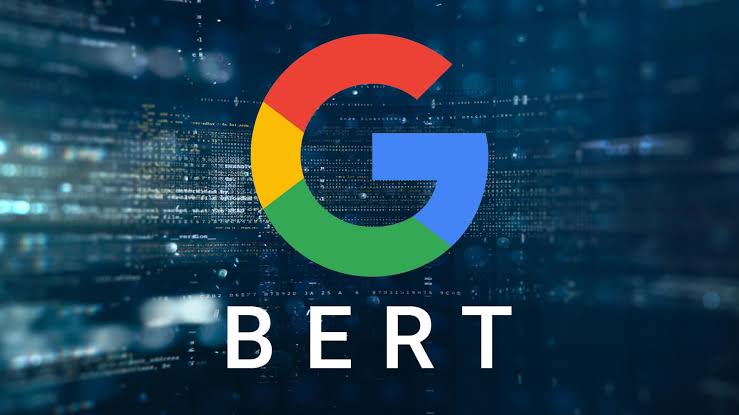
How AI (Google Bert) is Changing Web Searches in Kenya
Let’s explore exactly how AI advancements like Google BERT work and what’s coming next for SEO.
Search engine optimization is undergoing a revolution driven by artificial intelligence. Google’s new BERT algorithm overhaul has set things in motion, but it’s only the beginning. Let’s explore exactly how AI advancements like BERT work and what’s coming next for SEO.
What is BERT and How Does It Work?
In 2018, Google rocked the SEO world by unveiling a new AI system called BERT. So what exactly does this tech do?
BERT, or Bidirectional Encoder Representations from Transformers, allows Google to comprehend language and search queries on an entirely new level.
Rather than just scanning keywords, BERT analyzes words in relation to surrounding text, understanding meaning and intent like a human. This contextual awareness enables remarkably accurate interpretation of what users want from searches.
Early Google algorithms viewed each search term in isolation. If I searched for “good action movies,” previous tech mainly focused on matching those exact words. BERT checks for context, interpreting “good” and “action movies” in combination to discern I want quality, fast-paced films.
Beyond individual words, BERT evaluates complete phrases and questions people search to identify intent. It even considers punctuation like question marks as signals for decoding needs.
This functionality comes from a breakthrough machine learning model called transformers. BERT’s transformer was pre-trained on a vast dataset, giving it an innate grasp of language structure like grammar. This training enables BERT to dynamically apply that linguistic comprehension to new searches it encounters.
So in a nutshell:
- BERT relies on transformers that innately understand language via deep learning
- It analyzes words in relation to surrounding text for contextual meaning
- This identifies the underlying intent behind search queries with human-like accuracy
For SEOs, BERT has been an absolute game-changer. Let’s look at why it matters.
Why BERT Marks a Milestone for SEO
Google processes over 3.5 billion searches per day. Even tiny algorithm improvements significantly impact what content surfaces for queries across that gigantic volume of searches.
Google’s algorithms aim to satisfy user intent – understanding what people want or ask, then matching them to websites with helpful information. BERT gives Google an uncanny knack for deciphering intent accurately. This forces the SEO game to evolve.
Here are key reasons BERT has shaken up search:

1. More Accurately Interprets Complicated & Conversational Queries
BERT excels at handling complex questions and conversational long-tail keyword queries. It distinguishes between superficially similar searches where small word variations radically alter user goals.
Take a query like:
“What credit cards offer the best travel insurance for trips to Cape Town?”
Older Google algorithms focused heavily on matching the exact term “travel insurance.” BERT also weighs the surrounding context – “trips to Cape Town” and “best” – grasping this is a specific request for top travel insurance options for that destination.
The enhanced comprehension of queries like these alter search results significantly. BERT surfaces content better aligned with query nuances and user intent. Pages loosely related to general travel insurance drop while highly relevant niche content emerges.
2. Understands Local Intent for Enhanced Local SEO
BERT combines location references, keywords, and contextual intent signals to radically improve localization and ranking of appropriate nearby businesses.
If you search:
“pediatrician in nairobi good with autistic kids”
BERT not only recognizes this query relates to pediatricians in Nairobi, but it further understands specific desirable traits like autism expertise. Pages of pediatricians with strong reviews or content showcasing autism experience are prioritized in ranking.
3. Forces SEOs to Shift to Intent-Focused Content Strategies
In the past, somewhat vague content arbitrarily packed with target keywords could potentially rank. With BERT’s contextual comprehension, creating pages laser-focused around fulfilling specific searcher goals and intents is obligatory.
If your content doesn’t deeply satisfy the need behind a query, BERT will dismiss it as irrelevant despite matching surface-level keywords. SEO becomes less about gaming keywords and much more about creating genuinely useful content.
Building a BERT Content Strategy
Now halfway through our AI SEO analysis, let’s recap key lessons so far around optimizing for BERT:
1. Shift to Intent-Based Content
- Go beyond keywords to intensely focus pages around fulfilling search intents
- Analyze search queries to identify needs and create targeted content addressing them
2. Optimize for Conversation Queries
- Add natural phrasing responding to conversational long-tail questions
- Use relevant headers, FAQs, and structured data to tackle complex queries
3. Enhance Contextual Signals
- Improve page clarity through contextual links and anchored text between concepts
- Demonstrate expertise around topics with in-depth, insightful content
How to Optimize Content for AI Assistance
The techniques that made pages rank 5 years ago are now woefully outdated. In the era of AI, effectively optimizing content to assist searcher needs is mandatory.
Here are key areas to focus on:
Laser Focus Every Page
In the past having a blog with posts targeting wide arrays of loosely related keywords could garner traffic. These shotgun approaches fail now.
Each page must deeply cover an explicit searcher intent or question. Stay ruthlessly focused answering what the page optimizes for to entice engagement and linking.
Structure Content Purposefully
How you present content impacts comprehension. Use:
- Relevant headers demonstrating the relationships between concepts covered.
- Short, focused paragraphs easy for algorithms to digest.
- Bullets/numbering to simplify complex topics.
- Bolding to emphasize important keywords and phrases.
Well-structured content assists AI understanding just as it does for human readers.
Enhance Discoverability
Optimized metadata, titles containing keywords, descriptive URLs and using alt text for images enhances content digestion. Ensure your media has file names, captions and descriptions supporting discoverability.
Interlink Pages logistically
Links indicate relevance between pages. Link important concepts between related posts using anchor text focused on the connection’s context. richest internal connectivity is critical for AI mining the information.
Write Conversationally
Conversational long-tail queries require natural responses. Use language suiting the actual inquiries you want to rank for rather than rigid keyword stuffing. Answer questions helpfully while guiding readers deeper into resources.
As AI march forward, query understanding reaches new heights every year. Soon search engines may grasp complex questions on par with humans. Even mundane product searches will invoke personalized results aligned to your taste, needs and preferences.
SEO will entail almost psychic levels of targeting content experiences around people and anticipating desires before they even fully form questions. Are you ready for that future?
The Future of AI is Now
Here in early 2024, we are merely glimpsing the potential of artificial intelligence. Things once considered distinctly human like creativity, strategy and language continue getting unlocked for machines.
As machine learning algorithms ingest trillions of data points, the line between robotic automation and conscious thought blurs. We rocket toward an inflection point where AI stops simulating intelligence and becomes intelligent.
Meanwhile, industries across every sector harness these exponential technological gains. Governing AI safety and ethics emerges as a central concern in preventing potentially catastrophic misuse.

Visionaries like Elon Musk tread cautiously while Google, Microsoft, OpenAI and more rush forward innovating new self-learning algorithms. We all wonder just how far this push into artificial general intelligence can ultimately go.
Regarding SEO specifically, the answer over the next 5 to 10 years is – much MUCH further. We have only scratched the surface of what advanced AI promises for search.
Conclusion: Riding the AI Wave in SEO
BERT revealed how vital search intent comprehension is becoming.
As AI transforms Google and other search engines, focusing efforts around boosting contextual understanding and directly answering user queries grows mandatory.
Companies clinging to older broad keyword targeting will vanish into obscurity. Content not evolving risks fading into irrelevance.
The takeaway is clear – adapt or disappear. Each year will usher in new exponential jumps. At conferences I now say “this WILL disrupt your entire approach to SEO” rather than “this MIGHT impact SEO“. A Monumental shift is underway. Success means riding this wave using AI rather than being swept away by it.
Are you ready to optimize for the mammoth impact AI will have on search in the years ahead? The time for action is now.





